-
When you click on links to various merchants on this site and make a purchase, this can result in this site earning a commission. Affiliate programs and affiliations include, but are not limited to, the eBay Partner Network.
-
Posts
780 -
Joined
-
Last visited
Content Type
Forums
CGC Journals
Gallery
Events
Store
Posts posted by stagedoorjohnny
-
-
3 hours ago, G.A.tor said:
this auction is defying all logic imo
I would tend to agree with this, especially from my perspective which is someone that has been out of the loop for a long period of time. But how many times have we said this after an auction over the last 15 years? And the market continues to march upward. I am truly in awe.
-
9th Arrow - v3 #6:
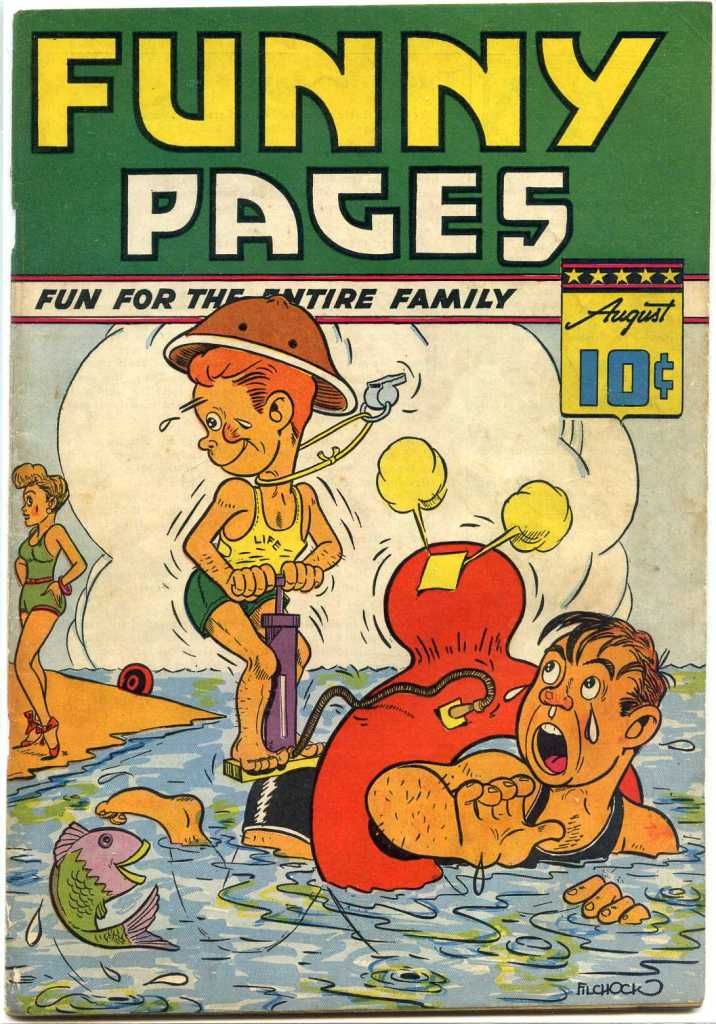
Wow, now this is a book I have rarely seen. Thanks for sharing. This is what I love the most about these boards.

-
In a string of classic covers, it's "extra" classic
(thumbs u
26-29 are all classic covers, IMHO. But 27 is my fave.
-
RHG, that Weird 2 is awesome. An incredibly difficult book.

-
Only one I have a pic of:
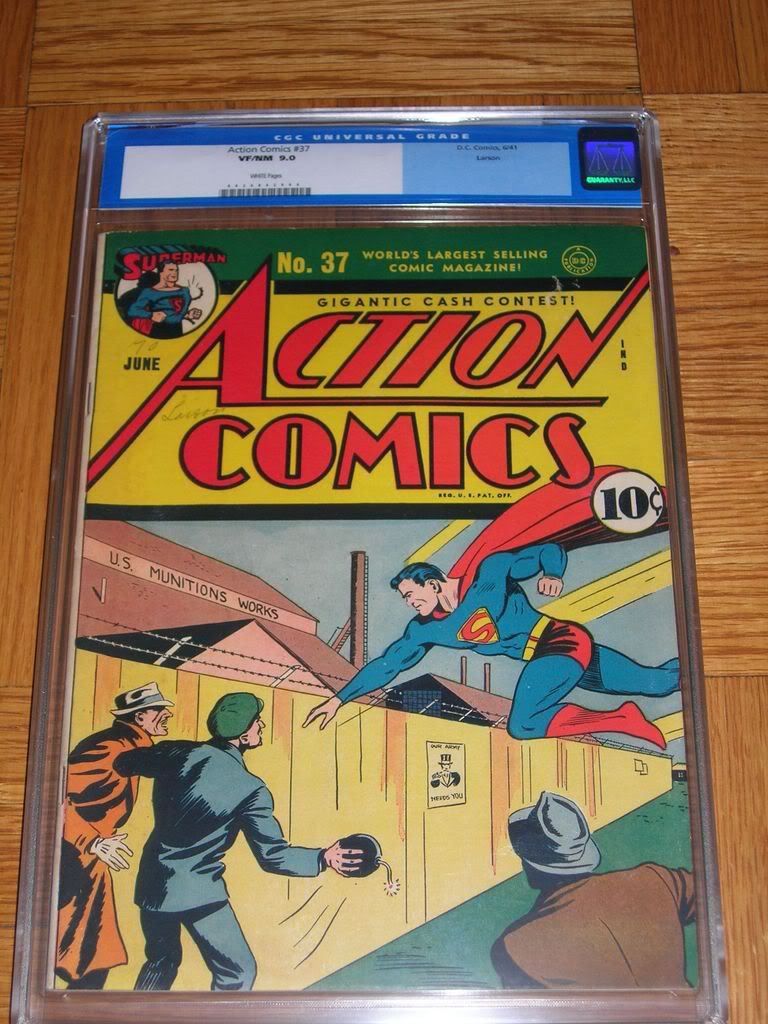
-
Thanks. Back cover has a corner crunch and a tear. But other than that, that is it.
-
Anyone have the Windex chart to Star Comics handy? I wonder where this one would fall in scarcity. The only Centaur I currently own, never seen another decent copy available.
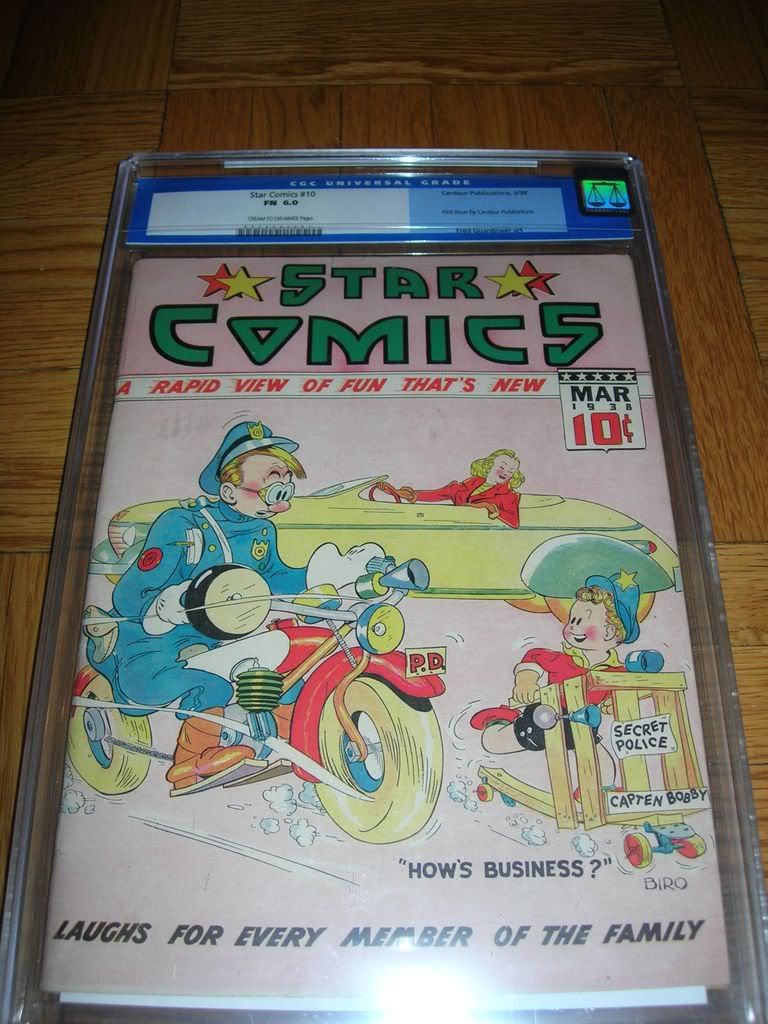
-
Unfortunately, the 37 is gone. But 33-36...

-
Beautiful set of books. Congrats!

-
In case you Mad aficionados missed it last week, Mad has a new series on the Cartoon Network that premiered last Monday. Second episode is on tonight. Very funny, but way too short at only 15 minutes. It will make you crave for more.
-

I am constantly on the hunt for Mad 30-80 Gaines File Copies and let's just say it is slim pickings right now in the marketplace. Actually, it has been this way for the last 3 years and counting on these books. But I do love them, they are such a part of Americana.
-
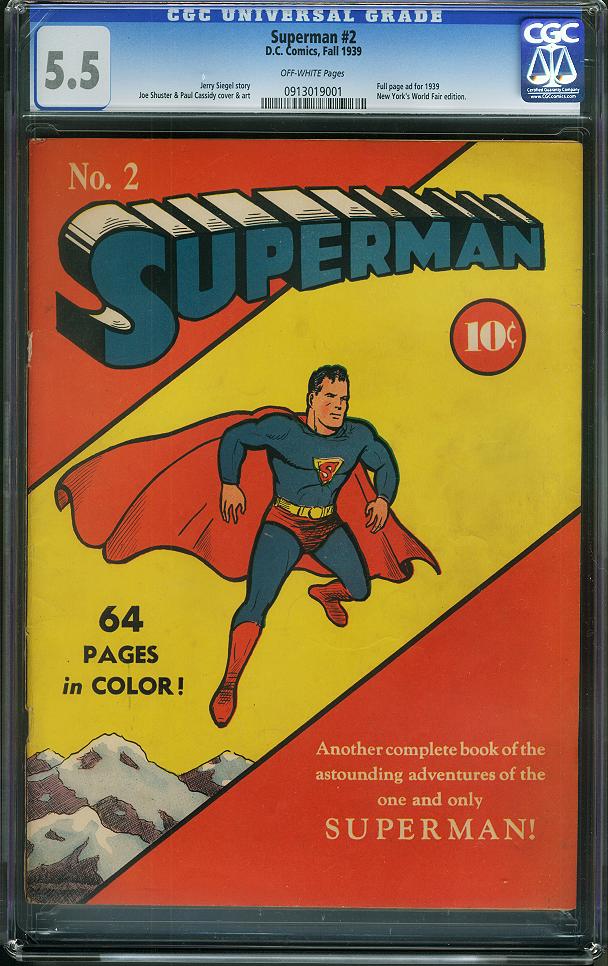
This is my favorite. Beautiful set of books, Jeff.

-
Yes, we went a bit crazy didnt we?


Yes we did. But that book is worth it. Nice work! (thumbs u
-

Great book. I was the under bidder on that one.

-
Very cool stuff. Not a big "Centaur-Head", but I do have a couple-
Only CGC graded copy (many thanks to Gator):
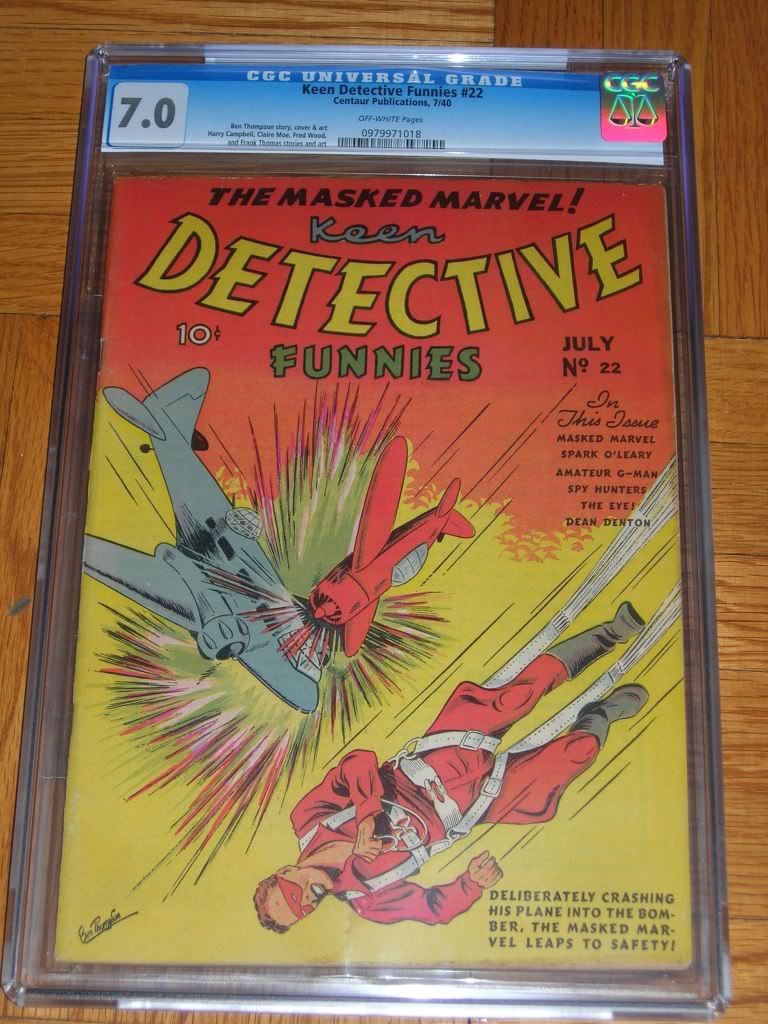
One of two CGC graded, this is the higher of the two:

-
A really nice Nova Scotia copy.

Very cool book.
-
San Francisco

I like this one. Very nice.

-
(thumbs u
One of the best.
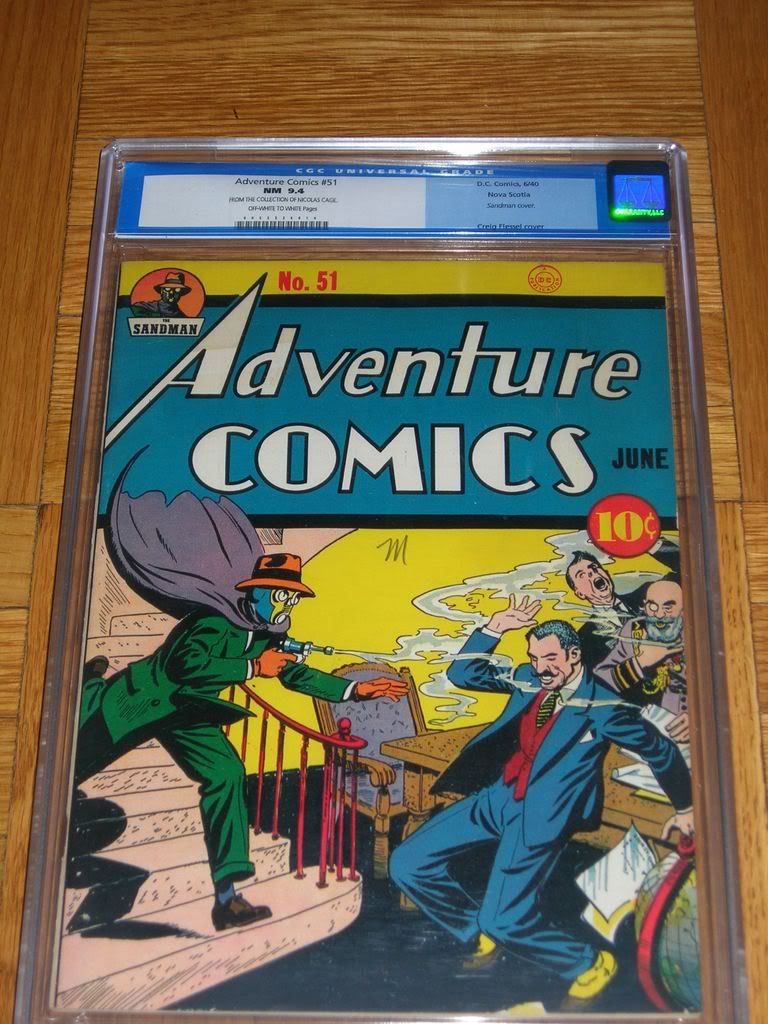
-
Using heat to reduce creases, wrinkles, or other planar distortions is not recommended by professional paper conservators. Many studies have shown that increased heat accelerates paper aging, especially papers made from groundwood pulp. Groundwood pulp ages faster than other papers because many of the naturally-occurring constituents remain in the sheet after processing, including lignin (in contrast to chemical pulp papers which have been bleached or otherwise chemically processed to remove/reduce harmful elements such as lignin). Groundwood papers, as seen in newspapers, were originally made for temporary use and even tend to yellow in sunlight.
Nice work, FF. (thumbs u
This paragraph above pretty much sums up the simple facts that have always been out there... but seem to be ignored. It's not that complicated and the LoC's response is some affirmation.
Many conservators elect to accept minor wrinkling and creasing as part of the artifact's history of use, rather then subject the work to what may begin or cause premature aging and discoloration.

If only more collectors had this mindset. Nothing worse than squishing all the history out of these older books, especially pedigrees. What a shame, IMHO.

And sorry for going off on a tangent with the last comment. I just find a little irony in the LoC's statement. You'd think it would be a collector that would appreciate and accept the specific history of a book, not a conservator.
-
Scott was bang on about early DC's though, they really were built like tanks inside and out compared to most same era titles.
Were there any other publishers, from your observations, that stood out as using above average paper from a quality standpoint?
-
All I know is the more I work on GA books the more I notice a marked difference between the paper used within the same tile/publisher over years (war years especially.) let alone what paper different publishers used compared to another to save money. Until you try to match page quality and thickness for donor material you never realize just how different the paper can be.
That's the tricky part.
And that's why pressing GA books scare the living @%#$&* out of me. They're like a box of chocolates...
-
I'm going to be asking a friend's wife about this issue - She's a paper conservator and book restorer for the Library of Congress
Better yet, get her to sign up and join in on the conversation!

And if she's shy... At the very least, try to get her to read this thread. (thumbs u
-
All of the questions regarding the safety of encapsulation are secondary to the storage environment in which the artifact is kept. If temperature and humidity are properly regulated and stabilized, the rate of decay of an artifact will be slowed considerably even if encapsulated.
Agreed. I really don't have any concern about a book being in a CGC holder if it is properly stored.
-
So would I (that's why tb's experiment sounds so interesting), but we are getting far afield of the original point that fantastic_four raised when he started the thread. The question was whether a typical dry mount press job would cause "long term damage" to a comic. My point was that it will cause at most negligible damage on a molecular level, but nothing appreciable in terms of fold strength, suppleness, tear strength, or any other test of paper freshness or strength. It doesn't seem like you're disputing that, right?
I am disputing it in the sense that I don't know the answer. But you have to understand my point of reference: I am a Golden Age collector. I know minimal about any funny book printed past 1945. They are my sole focus and main concern in all these discussions. When I am looking at all this information, it is from that perspective. And I think that makes a big difference in how you look at this whole topic.
I do have genuine concern about books from the 1940's being pressed. Not only do you have different and inconsistent manufacturing processes back then, but you also add anywhere from 60-70+ years of storage techniques into the equation. You want to talk about wild cards? And just because the results on pressing one book, with regards to maintaining preservation, were negligible that does not mean you will get similar results on the next book. Every book is so different and had such a different journey to get to today.
I get frustrated because I don't think people consider this enough. They extrapolate one book's results to all books. They press a book from 1968 successfully and think it will be similar for a book from 1942. And the scary part for me is that even with all these unknowns out there, it is not slowing down the amounts of Golden Age books being "processed".



Heritage's Next Event Auction has started posting books !
in Golden Age Comic Books
Posted